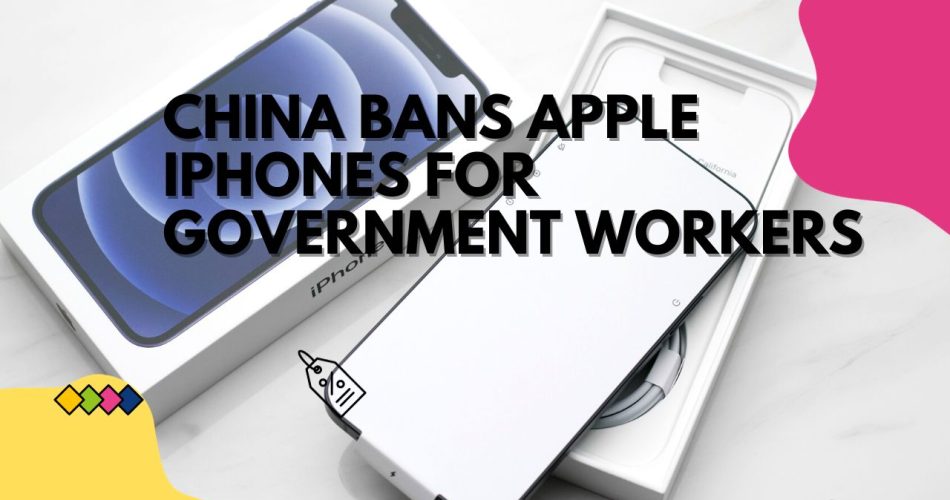The Chinese government has recently expanded its ban on the use of Apple iPhones by state employees, according to multiple reports. Initially, in September 2022, a small number of government agencies in Beijing and Tianjin began instructing staff not to bring iPhones into the office. However, the ban is now rapidly accelerating across the country.
Ban Spreads Across Government Agencies
Over the past couple months, an increasing number of Chinese government agencies and state-owned firms have formally told their employees to stop using iPhones for work purposes. This ban now covers organizations across at least eight provinces, including the economic powerhouses of Guangdong and Jiangsu.
While China has not publicly announced the iPhone bans, the government has cited unspecified “security concerns” about Apple devices, which aligns with China’s broader goal of reducing reliance on foreign technology.
Motivations Behind the Ban
Analysts see the iPhone ban as being driven by both economic and political factors:
- Retaliation Against U.S.: The action comes amid escalating tensions between the U.S. and China. It mirrors U.S. restrictions on Chinese tech firms like Huawei. The ban signals China’s displeasure and ability to retaliate.
- Data Security: There are concerns iPhones could access sensitive data or networks. China wants tighter control over data flows.
- Support Domestic Industry: The ban helps promote domestic brands and China’s goal of technological self-reliance.
Impact on Apple
The ban could negatively impact iPhone sales and Apple’s revenue from China. Apple gets nearly 20% of its total revenue from China, its third largest market behind the Americas and Europe.
However, most analysts believe the direct impact will be limited, as government employees make up a small percentage of iPhone users in China:
- Government workers likely only account for around 0.5 million iPhone users out of an estimated 45 million iPhones sold in China annually.
- There is still enormous demand for iPhones among regular consumers in China.
The bigger threat for Apple is if this ban sparks a nationalist backlash against iPhones or foreign brands more broadly among Chinese consumers. For now, there is no evidence of that occurring.
Competition Between Apple and Huawei
The iPhone bans come amid intensifying competition in China’s smartphone market between Apple and the revived Chinese brand Huawei.
Huawei’s Resurgence
Huawei appeared down and out just a year ago, hobbled by U.S. sanctions. However, it made a surprise comeback with its high-end Mate 60 smartphone launched in August 2022. The Mate 60 is powered by Huawei’s own advanced 5G chip, making it less reliant on U.S. technology.
The Mate 60 has sold extremely well, over 1 million units in its first month. It shows Huawei’s continued brand strength in its home market.
Slowing iPhone 15 Sales in China
Meanwhile, early sales data suggests more modest demand for Apple’s latest iPhone 15 series in China compared to last year’s iPhone 14.
Multiple estimates show iPhone 15 sales in China down 4-6% versus the iPhone 14 a year ago. Apple has lost its #1 spot in China’s smartphone market to Huawei.
This reversal can be attributed to strengthening Chinese brands, a slowing economy, COVID impacts, and rising Chinese nationalism and anti-American sentiment.
Still, Apple CEO Tim Cook has expressed optimism about China during Apple’s latest earnings call, citing record iPhone revenues in China. The iPhone remains hugely popular, even if facing greater competition.
Outlook for Apple in China
The expanding iPhone bans and competition from Huawei does pose risks for Apple in China. However, most analysts believe the iPhone consumer base in China remains strong enough to withstand these challenges.
Government action could quickly change that if the bans spark a wider public backlash against Apple. So far, there are no signs of that occurring.
As Cook stated, China does remain a “bright spot” for Apple, supported by rising wealth and a tech-savvy middle class. But risks are elevated by economic and political tensions. Apple’s fortunes in China could shift quickly depending on government policy and consumer nationalism.

